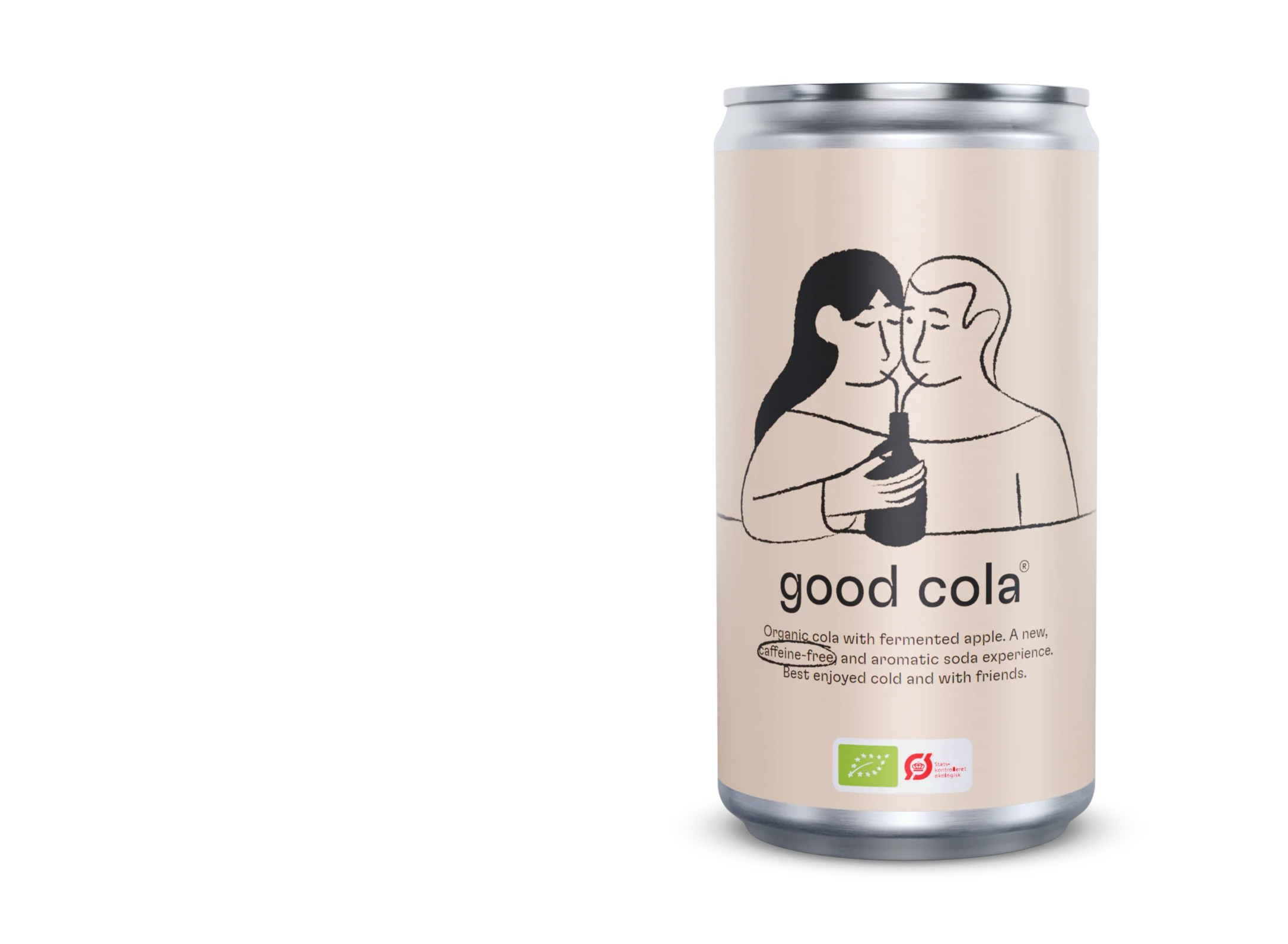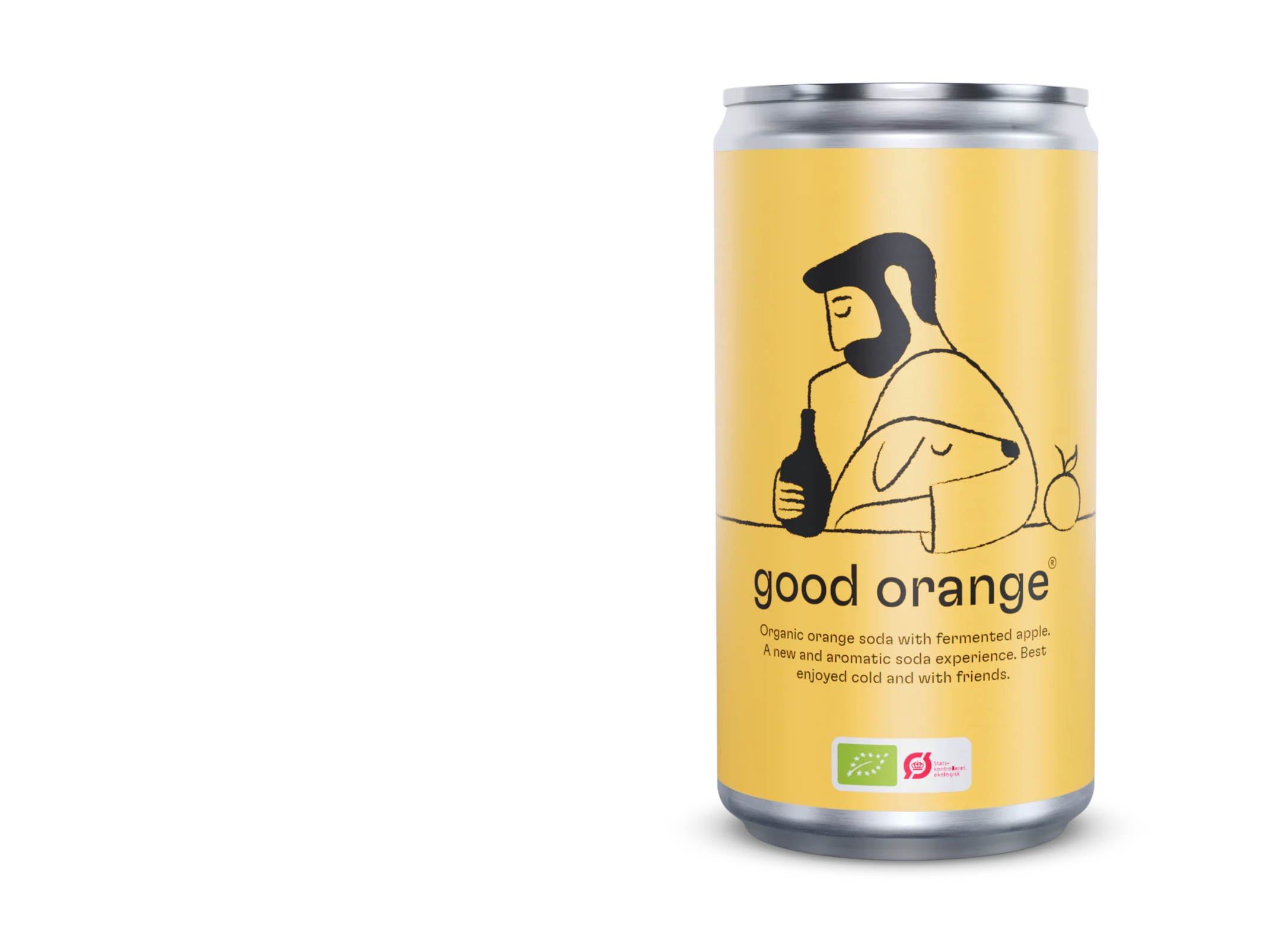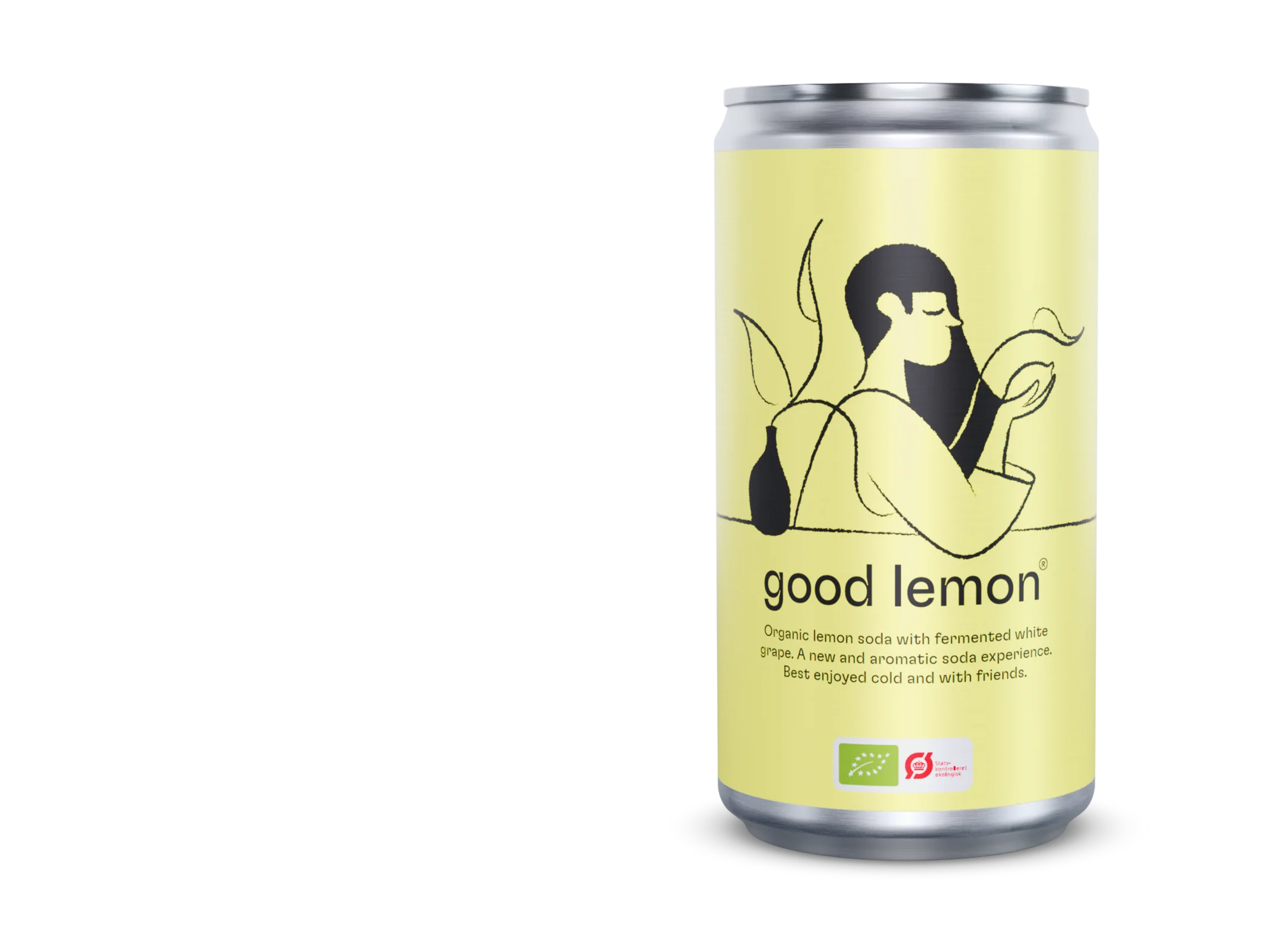So, what does the word organic actually mean?
Let’s be real — “organic” can sometimes feel like just another buzzword. But for us at Good Sodas®, it’s the heart of what we do. We're not here to greenwash our drinks with trendy labels. We’re here to talk straight about what organic really means, especially when it comes to soda — and why we believe it’s worth caring about.

The short version? Organic means real ingredients, grown without synthetic pesticides or fertilizers, and made without additives you can't pronounce. But let’s go a bit deeper.
In Denmark — the first country in the world to implement a national organic control label (yes, really!) — the word "organic" isn’t just slapped on products. It’s backed by regulation. When you see the red Ø-label, it means every step — from farming to packing — follows strict standards that respect people, animals, and the environment.
But organic is also about values. The global organic movement is built on four simple principles: Health, Ecology, Fairness, and Care. It’s not just what’s in your soda — it’s about how that soda fits into a better system.
What does organic mean in drinks?

In drinks like soda, "organic" means the ingredients come from farms that respect soil health, don’t rely on chemicals, and avoid genetic modification. It also means every step — from fermenting to bottling — sticks to super transparent practices. It’s the opposite of shortcuts.
So when people ask, “How is organic soda made?”, or “What makes a soda organic?”, it comes down to this: We use natural fermentation, organic fruit and spice extracts, and nothing fake. That’s it.
Good organic sodas from Denmark
We kept things simple on purpose. Three fermented and fully organic sodas, each made with organic ingredients, reduced sugar, and absolutely no artificial additives. They're fermented for depth of flavor — sodas you can feel good about drinking.

Good Cola®
Our boldest flavor. A fermented, organic cola with reduced sugar and zero caffeine. It’s packed with notes of cinnamon, lime, apple, anise, and orange.
Learn more
Good Orange®
Our organic orange soda - Good Orange®. With fermented apple to make its intense taste and subtle hints of lemon, apple, and grape. It tastes like the fruit it comes from.
Learn more
Good Lemon®
Our organic lemon soda - Good Lemon®. Perfect for all seasons — fresh, zingy, and with fermented white grape.
Learn more
Why we care about organic sodas (And why you might, too)
We're not scientists or saints. We're soda lovers who got tired of the sugar bombs and mystery-ingredient soft drinks on the shelves. So we made something different — organic soft drinks with fewer ingredients and more purpose.
Choosing organic might result in fewer pesticides in the soil and your body, and farming that’s better for biodiversity and climate. Some studies even link organic food to a lower risk of health issues.
So no, we're not claiming our soda will save the world — but it’s one step in the right direction.

How to know if a product is truly organic
Let’s be honest: just because a label says “organic” doesn’t mean it is. So how do you know if a soda — or any drink, really — is the real deal?
The key is organic third-party certification. Organic is a protected term in many countries, but the rules (and logos) vary from place to place.
Here’s what to look for:
Denmark: The Red Ø-Label
Here in Denmark we introduced a national organic control label back in 1987. The red Ø-mærke is your guarantee that a product follows strict organic rules, from the farm all the way to the bottle. It means every part of the production chain has been certified and inspected every year. It’s simple, recognizable, and highly trusted.
EU/Germany: The EU Organic Logo & Bio-Siegel
In Germany (and across the EU), certified organic products carry the EU green leaf logo. It means the product meets EU-wide organic farming standards — no synthetic pesticides, no GMOs, and animal welfare protections. Some German products also carry the Bio-Siegel, which is still important to many consumers.
United Kingdom: Soil Association Organic
After Brexit, the UK retained strong organic rules. One of the most respected certifiers there is the Soil Association. Their logo is often seen on food and drink, and it means the product meets rigorous standards for environmental protection, animal welfare, and ingredient transparency. There’s also Organic Farmers & Growers and other certifiers — all backed by law.
United States: USDA Organic
In the U.S., look for the USDA Organic seal. It ensures the product is made with at least 95% certified organic ingredients, and is free from synthetic fertilizers, most pesticides, and GMOs. The USDA also inspects farms and facilities to ensure ongoing compliance.
Want to Try It?
Whether you're new to the world of organic soda, curious about the difference between organic and regular soda, or just looking for a natural soda that doesn’t taste boring, we’ve got you.
Good Sodas® is available online and at select retailers. (Yes, we know you're wondering: Where can I find sugar-free organic soda? Ours is reduced sugar, not sugar-free, and there's a difference — we think flavor matters.)
Looking for the best organic soda brands? We’re biased. But we hope you’ll taste the difference and feel the intention behind every bottle.
